#tallien
Text

the thermidorians demand the arrest of robespierre (1794)
251 notes
·
View notes
Text
Changes in the Committee of the Public Safety:

71 notes
·
View notes
Text
welcome to the french revolution. we've got catty bitch of a journalist who got executed for being a catty bitch, even cattier bitch journalist who somehow didn't get executed but wrote from his bathtub, big loud guy who cheats on his wife and cheats in his financial reports, fancy dressed lawyer who takes his dog on two hour walks, broke 26 year old goth genius, a few women who burn down buildings and kill shopkeepers, another woman who suicide baited the dog walking lawyer, failed playwright who commits white collar crime, hot bisexual with an orgy cave, another journalist whose paper is primarily expletives, two guys who blew up civilians for no good reason, guy who brings a knife to the government to threaten his fellow officials, guy who thought he got paralyzed from having too much sex, asshole mathematician whose grandson became president of france, and a guy everyone calls bonbon.
#in order:#desmoulins#marat#danton#robespierre#saint just#the srrc#olympe de gouges#fabre#herault#hebert#fouche and collot#tallien#couthon#carnot#augustin#french revolution#frev#shitpost#pigeon.txt
352 notes
·
View notes
Text

Historically accurate depiction of the attempts to overthrow Robespierre before Thermidor.
#frev#french revolution#robespierre#maximilien robespierre#saint just#louis antoine saint just#tallien#meme redraw#fanart#art#digital art#fun
58 notes
·
View notes
Text
People planning to stab Robespierre compilation
What was your plan in going to Robespierre’s house.
To talk to him in person.
What did you want to talk to Robespierre about?
I don’t want to give any response or explanation regarding this question.
Do you realize that your answers lead one to believe you had the intention of committing a crime, and that you must explain your intentions?
She does not want to explain further, and adds that she intended to ask him for instructions on the situation and the strengthening of the Republic.
Do you realize that your declarations and obstinacy to not want to explain yourself cannot be reconciled with such a plan, which is why I’m again asking you to explain yourself?
She persists in not wanting to answer.
Did anyone propose to you the plan of going home to Robespierre and did you tell anyone about it?
No.
Did you go to Robespierre’s house several times during the day?
No.
When you went to Robespierre, did you bring with you knives, and if yes, of which sort?
I had in my pocket two folding knives, one in tortoiseshell and the other in ivory, both trimmed in silver: the one made of ivory was given to me by my brother in 89, having found it at Prés-Saint-Gervais. The other was given to me by my grandmother three or four years ago. It was loaded with rust; I cleaned it and tried to remove the rust by scraping the blade with another knife, eight or nine days ago. I rarely use it.
Do you regularly carry two knives?
I carry the tortoiseshell one regularly, the ivory one showed up in my pocket, I didn’t know it was there.
When you went home to Robespierre, did you have the intention of using these knives to kill him?
No, moreover, we can judge as we please.
Interrogation of Cécile Renault, held on May 24 1794
At that time, the indictment that I (Lecointre) was preparing against the traitor (Robespierre) and his accomplices was completed; Fréron who helped me with his insights, Barras, Rovère, Thirion, Courtois, Garnier de l'Aube, Guffroy and Tallien etc advised me to attack him in person, so that success would be more certain. The roles were divided to support my opinion, and to combat with force the sophisms of Robespierre, but they were of the opinion that the memoir should be printed and distributed an hour before being read at the National Convention: Guffroy was in charge and had promised, from the 6th, to have it printed; and it was solemnly sworn by us that if the truth succumbed, we would immolate the tyrant in the middle of the Convention.
Conjuration formée dès le 5 préréal [sic] par neuf représentans du peuple contre Maximilien Robespierre, pour le poignarder en plein sénat: rapport et acte d’accusation dont la lecture devoit précéder dans la Convention cet acte de dévouement (1794), page 4
Bourdon de l'Oise, rightly frightened by the ease with which, until then, several batches of his colleagues had been delivered to the proscriptions of this tribunal, had wanted to exclude from the number of defendants, whom the two committees alone could bring there, any representative of the people: he had insisted that the decision could only emanate from the Convention itself, and by a special decree. On this subject, a great rumor arose within the assembly: the members of the two committees, whom Bourdon's motion implicitly accused of wanting to get hold of their antagonists, with Couthon and Robespierre at the forefront, had strongly qualified him as a caluminator. Robespierre, in his fury at being thus unveiled, had forgotten himself to the point of throwing the epithet of ”scoundrel” against Bourdon; and, far from retracting Bourdon's claim, he had insinuated that the latter was on his way to get arrested; that the committees could provoke it.
Bourdon, after this stormy session, had felt only too well that it was a fight to the death which had just begun between him and Robespierre: he had resolved to guarantee his own head, by the precipitous fall of that of Robespierre. It was with his own hand that he wanted to destroy this tyrant of the fatherland, this proud usurper who did not hesitate to degrade the national representation, in order to sacrifice it in detail to his disproportionate ambition. Once this decision to get rid of Robespierre by the dagger had settled in his head, Bourdon thought of taking, before the assassination attempt, some measures relative to his fortune. He took the keenest interest in a woman and several young children whose fate was linked to his own, and had made arrangements in their favor.
Now, it was me that Bourdon had chosen, to be both the preserver of his final wishes and the protector, after him, of these beings he loved. The day after 23 Prairial, Bourdon brought me to his house, making me believe that it was just a simple dinner. He then occupied a small bachelor's accommodation on rue des Saints-Pères in a house on the left, which only had a narrow door, without a doorman. His apartment was pointed out to me by a woman who was coming out, in despair at not having been able to get him to intercede for her husband. I had barely entered when Bourdon, without further circumlocution, said to me: “Listen, we’ve known each other for a long time; I know that you are a moderate patriot, that you are not very passionate about the republic; but you are an honest man, a good friend; and it is for these two reasons that I was able to open up to you about my projects and the measures they involve. Robespierre is my personal enemy; he attacked and threatened me in the middle of the Convention: he wants to kill me, in order to be able to more easily dominate the Convention and seize absolute power. I want to thwart his ambitious designs by immolating him with my own hand.”
At the same time, and as if he felt the need to convince me even more of the strength of his mind, he took out from under his bed an oblong casket, in which was tucked the coat he had worn on the day of the storming of the Bastille, the hat which, in the Vendée, had adorned his forehead as a representative of the people, and a large cutlass with which he was always armed on his expeditions. He took great care to point out to me that his coat was still covered with stains from the blood he had spilled at the Bastille, that his hat was riddled with the bullets of the Vendéens. As for the cutlass, he had more than once plunged it into the hearts of his enemies; it was the weapon with which he intended, at the first opportunity which presented itself, to strike Robespierre. I trembled lest the wall, which received these terrible confidences together with me, should share a syllable with anyone. Bourdon, to reassure me, said that for the development of his plan, he needed someone discreet enough to remain silent before and after the action; faithful enough to keep his will; zealous enough and enlightened enough to have it executed in due time. “It is you,” he said to me, “who will be my devoted confidant, I count on it and no longer worry about anything.” He immediately gave me his will with his instructions and some important titles.
God knows with what agitations this gift filled my soul, what bad nights I passed with the possession of this perilous deposit! At the slightest suspicion, at the slightest word of revelation, I would have been a dead man. What would happen if Bourdon had gotten arrested before or after the consummation of his revenge and the slightest indication of correspondence with him was administered against me? The sixteen days I spent in this state of uncertainty felt like centuries. Finally arrived, against all foresight, and without the isolated provocation on the part of Bourdon de l'Oise, this day, forever precious for humanity, of the 9th of Thermidor.
Souvenirs de M. Berryer, doyen des avocats de Paris (1839)
Tallien: I demanded earlier that one tears apart the veil. With pleasure, I just saw that it is torn apart entirely, that the conspirators have been unmasked, that they will soon be annihilated, and that liberty will triumph. (Loud applause.) Everything announces that the enemy of the national representation will fall under its blows. We give a proof of our republican loyalty to our nascent republic. I forced myself to remain silent until now, because I knew of a man who approached the tyrant of France, that he had formed a proscription list. I did not want to remonstrate, but I have seen the session of the Jacobins yesterday: I have trembled for the patrie ; I have seen the army of a new Cromwell forming itself, and I am armed with a dagger in order to pierce its breast, if the National Convention did not have the courage to issue a décret d'accusation against him. (Loud applause.)
Tallien at the Convention, July 27 1794
#robespierre#maximilien robespierre#frev#frev compilation#cécile renault#tallien#bourdon d’oise#how can people think history is uninteresting when ”plan formed on 5 prairial to stab robespierre to death in broad daylight”#is a legit title of a pampleth???
79 notes
·
View notes
Text



The remaining transparent pngs of the playlist cover of my frev playlist that I made!
#frev#tallien#Joseph fouché#fouche#frev community#Robespierre#maximilien robespierre#oklo makes a post#tea art 🎨
76 notes
·
View notes
Text
Propaganda mediatic around Tallien and french revolution
I fully understand that certain figures of the French Revolution are preferred over others who are less liked. It's a matter of preference. I myself have a very cultured friend who is a fan of certain royalists from this period like Olympe de Gouges, although I also admire the character in a certain way and deplore the sexism of that era which excluded her (such as the fact that she totally defends Louis XVI), but I've always enjoyed debating with this person, who is so respectful of others' opinions, very knowledgeable, and well-versed in the subject. Of course, the difficulty lies in not trying to defend the golden legend or the black legend.
It's another thing entirely to invent completely grotesque or even false facts to glorify one figure of the French Revolution and destroy another. In the grotesque episode of "Les Femmes de la Révolution Française" from "Secret d'Histoire," which was actually sexist (I" love" the fact that in this show, which claims to want to glorify women, they talked about the term "demi-mondaine" for women, when will there be an equivalent term for men, or the way paternalistic that someone call Olympe de Gouges the "little" Gouges ), there were also very serious errors or lies, take your pick.
To insinuate that Marat was a dictator when he was simply a deputy who was elected by universal suffrage, a journalist whose recommendations were not heeded, and who was arrested and brought before the Revolutionary Tribunal though acquitted according to the rules, what a funny dictator, I've never seen anything like that from a dictator before.
Furthermore, under what conditions would he have pulled off his coup d'état? The story continues in the next episode, I suppose, even though so far no historian has found any trace of Marat's coup d'état. I imagine the show will clarify that (or not). Under these conditions, I will address Tallien. They try to present him as heroic in the face of Thermidor when in reality everything was prepared for the theater of Thermidor, which was actually more anti-democratic than they let on and not out of the courage of this individual. They say it was Theresia's letter that motivated him to enact Thermidor when in reality it's because Fouché and his gang, of which he was a part, committed the worst atrocities during the French Revolution, and he wanted to escape the punishment that would rightly fall upon him and his friends and try to regain political "purity" by pinning everything on those who were to be executed (he later demanded the head of Billaud Varennes to further absolve himself). There are other motives regarding Thermidor that have nothing to do with the Convention wanting to get rid of a tyrant (Robespierre has faults but not those of a dictator or tyrant) or that they were fed up with the guillotine (the guillotine continued to function after Thermidor and the Convention had voted overwhelmingly for the creation of the Revolutionary Tribunal, arrests, the Law of Suspects). One day I'll write a more detailed piece on what I think because it's very complex, but you can watch "Robespierre: la Terreur et la Vertu" with English subtitles, it gives a better understanding of these events.
Tallien engaged in lucrative business, arresting the richest in Bordeaux so they would hand over all their money to him for personal use. Clearly not an upright man, but very serious. His lucrative business leads me to see two possibilities. Either he plundered honest people in difficult times under the pretext that they were rich and risked ending up with nothing for his personal profit, all while abusing his position, which is generalized extortion. Or he knowingly let suspicious individuals escape in exchange for money (should we recall that some suspicious Frenchmen betrayed France by handing it over to Toulon or Dumouriez), and imposed dechristianization not out of anger like Momoro, for example, but for his political career and to flatter himself, which is worse (sorry for comparing a man like Momoro to an individual like Tallien, they are truly incomparable). Later, he joined the muscadins, among other merry groups.
In any case, it's very serious, and whatever one might say about Robespierre, he had every right to be angry. Tallien is a political turncoat and bloody as Barras (I hate Ridley Scott's Napoleon for destroying the French Revolution and glorifying Barras, among others). The difference between Tallien, Barras, and Fouché is that Tallien completely failed, and an unpopular opinion perhaps, but I'm glad to see he suffered so much; it's well-deserved karma for all the wrong he did.
P.S: I love that the show "Secret d'Histoire" shows Thermidor as a great day for prisoners, as if they don't care about arbitrary arrests after this event (including the arrests of Albertine Marat, Simone Evard, Thuillier found mysteriously hanged, the fact that some political prisoners had to wait a few months after Thermidor to be released).
33 notes
·
View notes
Text
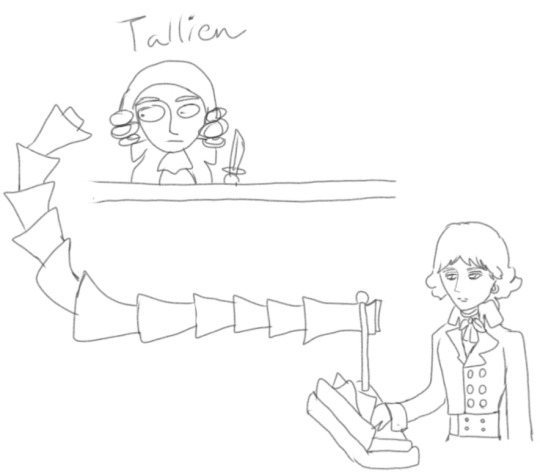
The device (a set of many trumpets) I really want SJ to bring to Thermidor 9th convention.
#frev#french revolution#thermidor#tallien#louis antoine de saint just#saint-just#my awful art#frev shitposting
34 notes
·
View notes
Text
I'm losing it, Tallien talks shit on the rostrum and it cuts to Robespierre looking at him like this:
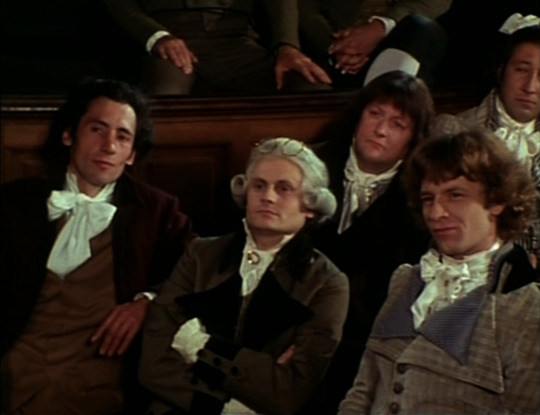
Also the guy on his left (our right) is Saint-Just 💀
#joséphine ou la comédie des ambitions#robespierre#tallien#saint-just#and I assume Le Bas on the other side?
87 notes
·
View notes
Text
I should probably stop ignoring her. Here’s Thérésa de Cabarrus, or Thérésa Tallien, your local “dictator of beauty”:






#tallien#Thérésa Tallien#Theresa Tallien#napoleonic era#napoleonic#first french empire#19th century#french empire#18th century#history of fashion#fashion#historical fashion#france#napoleon bonaparte#napoleon#frev#french revolution#history
55 notes
·
View notes
Text

Robespierre and Tallien
French, 1794
47 notes
·
View notes
Text
More Père Lachaise with @robespapier
Eleonore:

Babet and Junior:
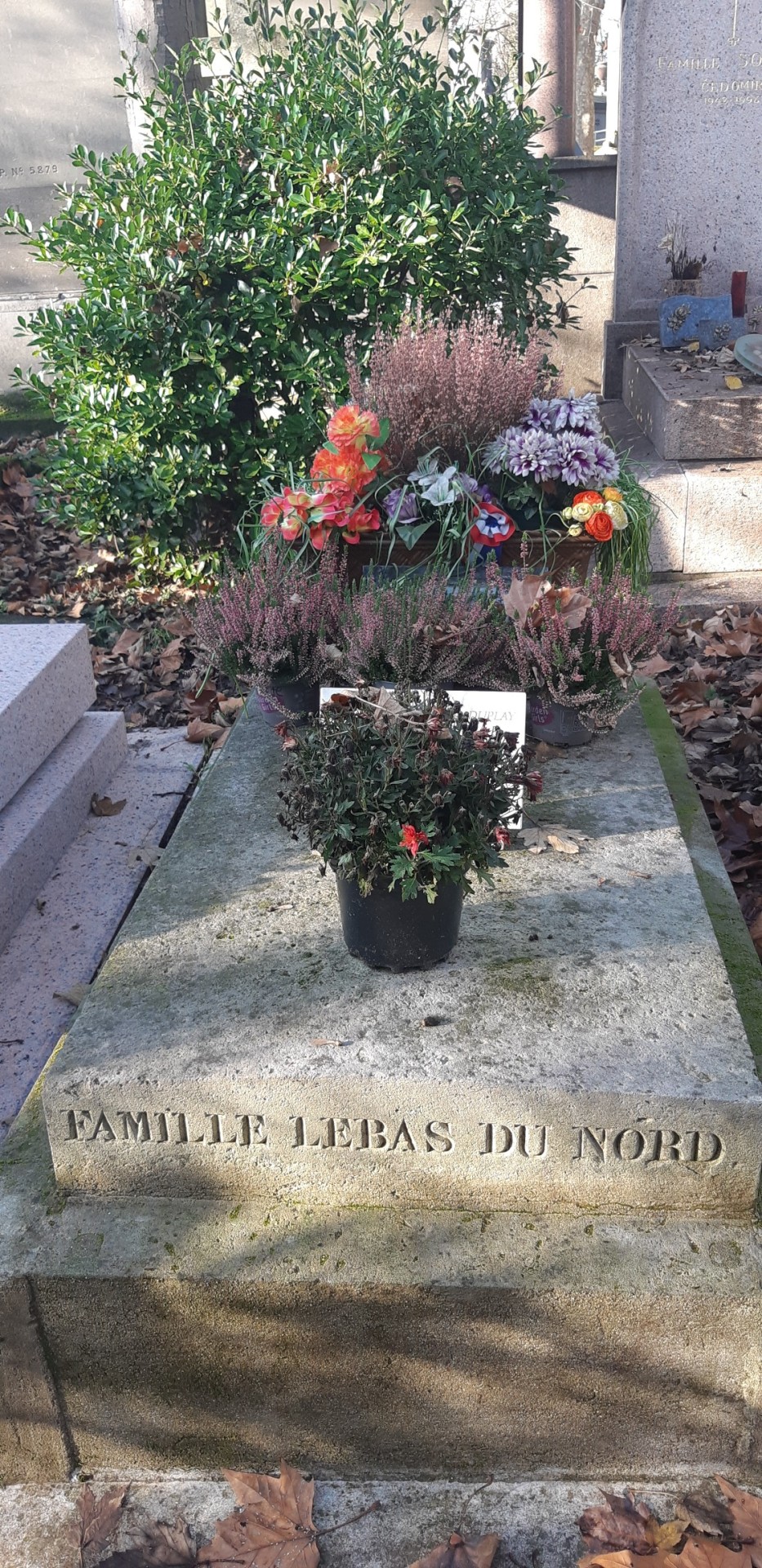


Barras (look at the sad state of it):
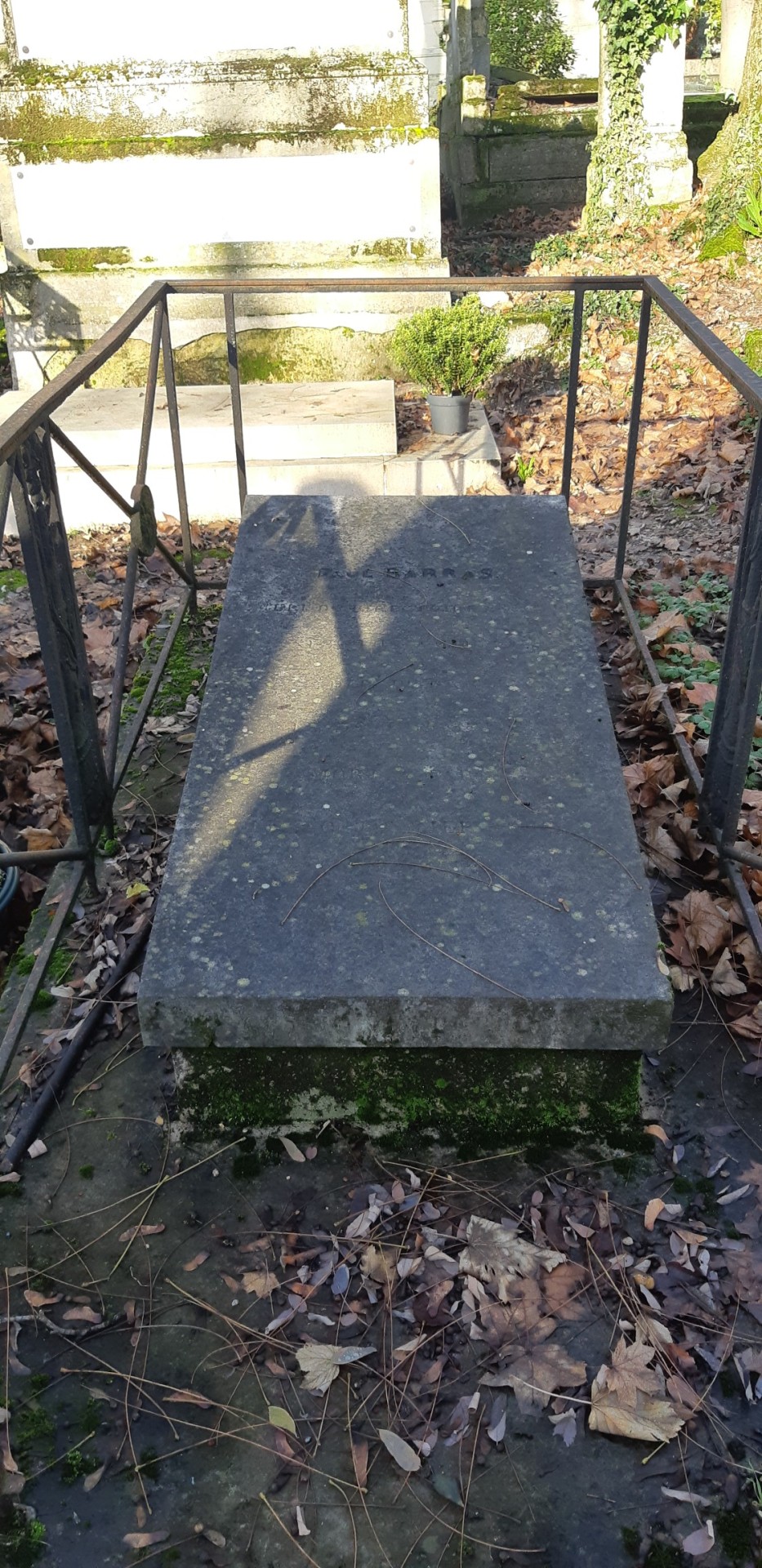

Tallien again:

And last, but certainly not the least, Fouché's daughter in law (captured because of the last name alone tbh.)

His son is also buried at Père Lachaise but we didn't have time to visit him. Apparently, he does NOT have "Fouché" on the tombstone! Just "F." and "d'Otrante". (Come on, be proud of the snake name!)
60 notes
·
View notes
Text
every day my need to kill jean-lambert tallien grows ever stronger. yeah he's been dead for like 200 years or whatever but my hatred of him goes beyond the constraints of mortality
31 notes
·
View notes
Text
Fouché in his memoirs (1825):
Tallien contended for two lives, of which one was then dearer to him than his own: he therefore resolved upon assassinating the future dictator, even in the Convention itself. But what a hazardous chance was this! Robespierre’s popularity would have survived him, and we should have been immolated to his manes. I therefore dissuaded Tallien from an isolated enterprise, which would have destroyed the man, but preserved his system.
Also Fouché, as reported in De 1800 à 1812. Un aide de champ de Napoléon. Mémoires du général compte de Ségar (1894):
…I persisted; and, addressing all the enemies of the Dictator, either separately or in meetings that I convened as head of public education, I reassured them, encouraged them, and got the Committee to call Robespierre before it to defend itself. It was putting him in a false position, he did not accept it; he refused to present himself and confined himself to the Jacobins, where I proposed to have him attacked, seized as a rebel and thrown into the river! We were preparing the means when the 9th of Thermidor arrived, the day when Tallien, single-handedly, unexpectedly, without having warned us, without knowing our project, warning us, denounced Robespierre as the tyrant of his colleagues!
#between this and the other guys’ plan to play the caesar murder with robespierre#the pre-thermidor schemes against him sound a lot like children fantasizing about creative ways to get revenge on a strict teacher#and then of course never going through with any of their plans#kind of makes me wish robespierre had never held his 8 thermidor speech to see what would have otherwise played out tho…#fouché#robespierre#tallien
17 notes
·
View notes
Note
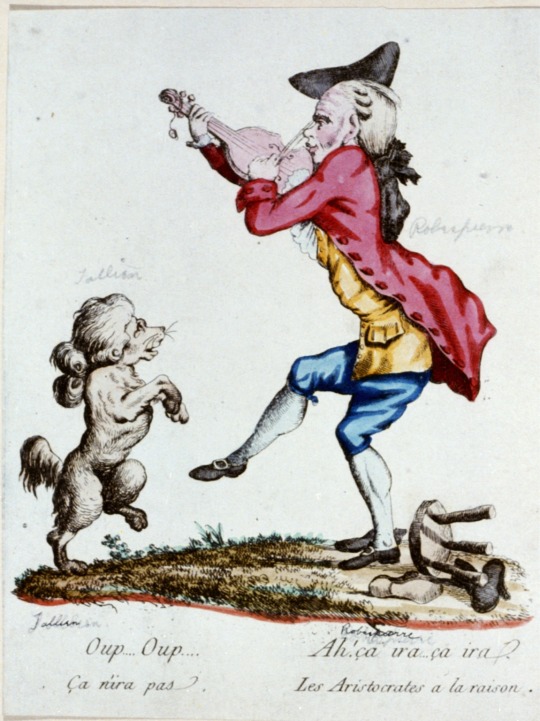
I'VE BEEN LAUGHING AT THIS FOR 5 MINUTES STRAIGHT
Dancing Robespierre and dog!Tallien (?) singing "Ça ira" together was something I never expected to see. This is another Thermidorian drawing at work I guess ??
Verdict: This Robespierre is not cute.
16 notes
·
View notes
Note
in your opinion, what was the most significant mistake the jacobins ever made? (i tend to like them much more than other factions in the frev, but i still want to know how Problematic my Faves were)
Good question. I'm not sure which period you want to talk about regarding the Jacobins, so let's discuss the one after the fall of Louis XVI's monarchy. I will mainly encompass the Mountain faction.
Regarding tactical errors, according to some historians, including Antoine Resche, a contemporary historian who has made excellent videos on the French Revolution under the name Histony, which can be found on the Veni Vidi Sensi website, leans towards the lack of left-wing unity as one of the errors. And honestly, he's not wrong. Some might think that the elimination of Danton and the Hébertists was a turning point. But it was salvageable (I've already discussed what I thought in one of my posts). Only the Jacobins made the grave mistake of eliminating Chaumette, among others, even though he had refused to participate in an attempt to overthrow the Convention, which showed he was the most reasonable. Keeping him as the prosecutor of the Commune would have appeased some of the sans-culottes. Instead, the Convention has him arrested and executed. I understand that at that time the Convention could not afford an overthrow and was afraid Chaumette might change his mind, but by doing so, they alienated a large part of the sans-culottes. The wave of executions like Gobel or Chaumette was one of the most disastrous moves.
Another one is the non-application of the Ventôse laws, but it is true that some Montagnards blocked this, and the Marais was against these laws.
Also, being a fervent advocate of freedom of expression, there should never have been decrees holding journalists accountable. I don't particularly like Desmoulins, but executing him for his writings… Moreover, it will not prevent opinions from forming and solidifying.
Regarding moral errors: In addition to the travesties of justice I mentioned concerning the Hébertists and the Dantonists, there were other cases. When Girondin deputies were dismissed, most deputies did not want them dead, let alone imprisoned. They were only supposed to remain under house arrest. The problem is, many of them escaped and incited uprisings in the departments, which further exacerbated the already endangered Republic. Despite all I have to reproach them for, some Girondins were honorable people, notably Manon Roland and Vergniaud (even if Vergniaud had an ambiguous attitude, he still remained under house arrest) who stay in Paris. Yet they were judged, condemned to death, and executed along with other Girondins who incited or attempted uprisings and fled Paris. It wasn't even a tactical error; it was unfair.
Another very minor point concerns the Convention entirely, and this is my opinion. Why separate Marie Antoinette from her son? I understand there were royalists in Paris (the assassination of the remarkable Louis Michel Lepeletier by one of Louis XVI's former guards, among other events, will demonstrate this) who would do anything to get their hands on him as Louis XVII, which would have been dangerous. It would have been better to monitor the child's education closely given this context, but why not have strict supervision while leaving him in his mother's care, even though we know her opinions? I don't want to demonize Antoine Simon, executed in Thermidor; he wasn't a brute; he had compassion for the former queen and liked the child, but it's horrible. Being myself a proponent of reforms for jail to ensure the child remains very close to his parents, I protest against this. And the royalists seized upon it to portray an image of an inhumane Republic.
Women's rights were not respected, as I discussed in my post "Women's rights suppressed."
One of the most serious errors was the Prairial Law. When this bill presented by Couthon and later approved by the Committee of Public Safety and voted on by the Convention passed, many innocents suffered. Following the execution of the "Robespierrists," the Convention lied, saying it had not approved it, which was false.
Paradoxically, there was no internal elimination necessary at that time, notably the case of Carnot, who gave orders behind the backs of others to wage a war of conquest, which would have jeopardized the Battle of Fleurus if Saint-Just had not intervened with the order. I don't understand why he wasn't arrested; generals have been executed for less than that. This man doesn't deserve his title as the organizer of Victory, but having eliminated those who had really done the job like Saint-Just, among others, he could claim that title.
I realize I have done a critical job on the Montagnards even though I admire them, so a few lines to rehabilitate them. Most of them refused the irresponsible war of conquest advocated by the Girondins. Finally, fatigue was fatal to them. They put their best efforts into saving France, but most became ill (Couthon, Robespierre; I don't know if Billaud-Varenne was beginning to develop his dysentery or if his illness came after his deportation). Robespierre made a grave mistake by slamming the door on the Committee of Public Safety following a dispute among its members, then a few weeks later making a speech where he designated culprits without naming names (like Fouché, for example), so some wrongly believed they were the ones being designated when they weren't. Fouché and his gang played on this.
I want to say that Jean Clement Martin explained that if the Girondins are seen as victims, it's because they didn't have time to put the Montagnards on the guillotine. There were quite a few assassinations of Montagnard deputies (some think that Barbaroux manipulated Corday to kill Marat, Joseph Chalier was killed in atrocious conditions by the Girondins of Lyon, Isnard's speech). When the Jacobins acted, there was an internal civil war and an external war against the Revolution, plus a depreciated currency. And they saved it. For a while, they tried to accommodate (at least the majority of them) their adversaries. Then the gloves came off. But they remained in democracy, even in the worst moments. The Jacobins supported the abolition of slavery (not just them), and most of the major Jacobin figures fully supported the uprisings by slaves against the colonists.
Napoleon, although praised today for inheriting a better situation thanks to the efforts of his predecessors, through his dictatorial attitudes, betrayal of the Jacobins, and wars of conquest (all the wrong things), left France in a worse state with the return of the Bourbons. Revolutionaries like Marat predicted from the outset of the French Revolution that if the Girondins persisted in declaring war, even if France were victorious, there would be a military dictatorship and subsequently the return of the Bourbons.
All this leads me to think that it was the revolutionaries of the Mountain who were pragmatic and Napoleon the "idealist" in the wrong sense of the term, given his grandiosity and stupid belief (in my opinion) that he could impose hereditary dictatorship, exploit other countries without them retaliating (but that's another story).
Finally, the Jacobins in power were exhausted; they even lacked sleep hours due to their internal schedules. Before the Prairial Law was passed, there was an assassination attempt on Collot, so it was thought that the royalist danger was present. Plus, this law was disfigured by those who presented it; they thought they would only use it against people like Fouché, Carrier, Barras, Fréron, Tallien—des despicable men who dishonored France and the Revolution. It was they who later presented themselves as victims of the Jacobins when they were the worst during the Terror. Contrary to belief, heads rolled after the Terror; just look at the execution of Romme and the other Montagnards, the execution of Babeuf, the fact that anyone who demanded the constitution of 1793 could be punishable by death.
Finally, I want to say that despite my speeches, I don't believe in providential men; if France could have a sense of greatness during this period, it's thanks to the people. In Algeria, we have the slogan: "One hero only: the people."
#frev#french revolution#Roland Manon#Gironde#Montagne#jacobin#Terror#Fouché#Saint Just#Carnot#Robespierre#couthon#Romme Charles#Babeuf#Vergniaud#chaumette#camille desmoulins#marat#napoleon#georges danton#tallien
26 notes
·
View notes